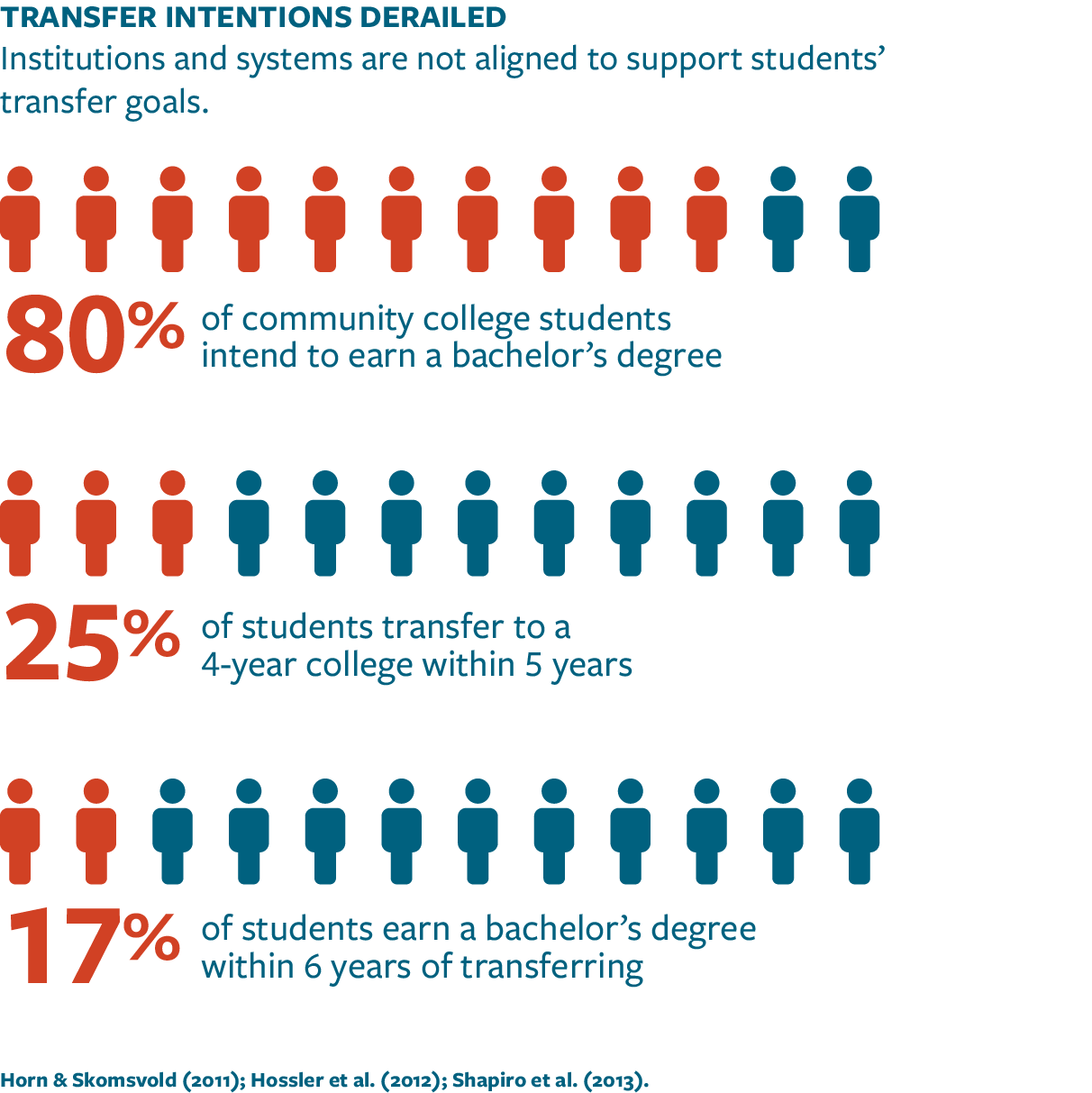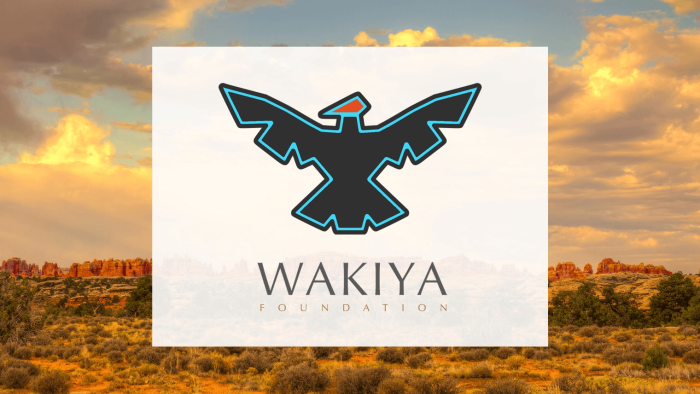
How We See the Problem
Leveraging workforce training, transferring between postsecondary providers and entering or re-entering the workforce are pivotal moments in a learner’s career or academic journey. Institutions and systems can implement policies and practices that inadvertently make these transitions difficult. For example, when curricula don’t align, or information systems are incapable of sharing data effectively, students risk losing credits, momentum and money. The jump from postsecondary education into the workforce also presents challenges, especially when institutions offer programming that does not align with the skills employers need.

Our Three Investment Priorities
Grants to Streamline Key Learner Transitions
Expansion of the Good Jobs Project
Validation
This grant supports the Georgetown University Center on Education and the Workforce in mapping economic opportunity by identifying where good jobs exist in urban and rural regions and establishing the most reliable educational and training pathways to those jobs. This analysis will expand on existing research by contextualizing opportunities to locale and enabling education and workforce providers to align programs with existing and projected labor demand.
Michigan Community College Workforce and Transfer Alignment
Scaling
This grant supports the Michigan Community College Association in improving equitable access to and through community college workforce programs for low-income learners statewide by improving program alignment with industry certifications, building new baccalaureate transfer pathways with universities and strengthening advising practices related to both transfer and career outcomes.
Hana Career Pathways in Healthcare
Exploration
This grant supports the University of Hawaii System (UH) in developing articulated career pathways that lead from high-demand, entry-level healthcare occupations to advancement in skills, education, career and earnings. UH will develop clear career pathways and institutionalize the necessary policies and data infrastructure that provide opportunities for learners to transition from non-credit job training to credit-based degrees by leveraging apprenticeships and stackable industry-valued credentials.
Building Stackable Credential Pipelines that Support Equity and Provide Pathways
Validation
This grant supports The RAND Corporation in examining stackable credential pipelines in two states to determine whether learners from low-income backgrounds benefit from stackable credentials, whether they face barriers in accessing these pathways and which institutional and system level policies and programs strengthen equity. The goal is to inform efforts within the two states and nationally to build effective and equitable stackable credential pipelines for learners from low-income backgrounds.
Accelerating Transfer Reform
Scaling
This grant supports The Aspen Institute in accelerating transfer reform nationally by activating two- and four-year college leaders and leveraging networks to implement lasting institutional change. This project will scale the adoption of effective practices aimed at improving transfer success for learners from low-income backgrounds.
Advancing Outcomes Research on Postsecondary Competency-Based Education Pathways
Exploration
This grant supports American Institutes for Research in developing a typology of competency-based education program design features. They will also develop an evaluation plan using the typology to research the impact of key design features and outcomes for learners from low-income backgrounds.
HBCU Degree Completion Pilot
Exploration
This grant supports the Thurgood Marshall College Fund in piloting an online college degree completion program for near-completer students at member HBCU Delaware State University in partnership with Southern New Hampshire University.
Workforce Aligned Postsecondary Education: Understanding the Way Forward
Validation
This grant supports the Urban Institute in assessing which workforce-aligned approaches of postsecondary education institutions are most critical for the success of learners from low-income backgrounds in the labor market. The Urban Institute will conduct a multi-faceted research project, including a return on investment analysis that will ultimately provide information on promising and effective programs, policies, resources and strategies that support success for learners.
Tools of the Trade Apprentice Scholarships
Scaling
This grant supports the Tools of the Trade Scholarship Program, which provides scholarships to construction and industrial trade apprentices attending a Wisconsin Technical College System college. Each spring, apprentices with financial need receive $2,000 to help cover the cost of equipment, work clothes and other related expenses.
Tools of the Trade Apprentice Scholarship: Jim Elliott
Scaling
This grant supports the Jim Elliott Tools of the Trade Scholarship Program, which provides scholarships to students in apprenticeship programs at Milwaukee Area Technical College. Each spring, 20 apprentices with financial need receive $2,000 to help cover the cost of equipment, work clothes and other related expenses.


